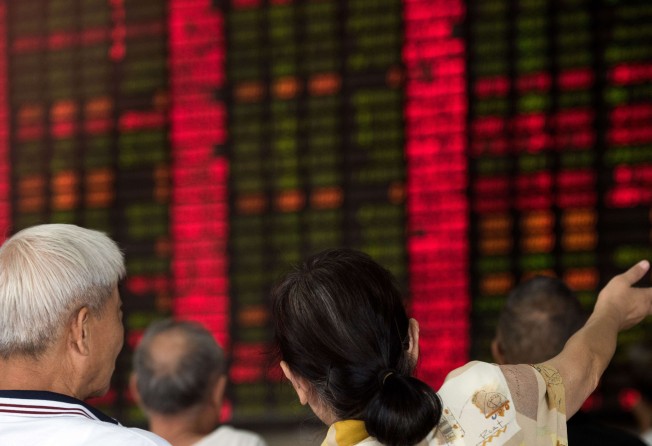Why Beijing is not about to approve more Hong Kong fund sales in the mainland
Mainlanders spent 72 times more buying six Hong Kong funds’ products than international investors buying into 42 China funds

It is approaching one year since Beijing first approved the sale of investment products by Hong Kong funds in the mainland. But since the end of 2015, just six funds have received approval from the China Securities Regulatory Commission.
In contrast, Hong Kong’s Securities and Futures Commission has given the green light for 42 mainland funds to sell their products here.
Observers might wonder why the CSRC takes so much longer than its Hong Kong counterpart in approving the funds.
But in fact the answer is nothing to do with the efficiency of the regulator. It is to do with an imbalance in fund flows. The six Hong Kong funds have proved so popular with mainlanders that in just 10 months they have sold 72 times more products by value than the 42 mainland funds have sold to Hong Kong investors.
Mainlanders spent 97.13 billion yuan in the first 10 months of this year to buy the six Hong Kong-domiciled funds’ products, according to figures released by the State Administration of Foreign Exchange.
This compared with the 132.07 million yuan Hongkongers channelled into the 42 mainland funds’ products sold in the city.
The cross-border fund sales are possible thanks to a mutual recognition scheme, launched in January, which allows Hong Kong-domiciled funds approved by the CSRC to be sold in the mainland, while China-domiciled funds approved by the SFC can be sold in Hong Kong up to a total quota of 600 billion yuan in sales, split evenly between the two sides.
Many Hong Kong fund mangers said there have been no new approvals by the CSRC since the six funds were given the go-ahead late last year. They believe the Chinese regulator fears that more Hong Kong funds getting approved would widen the already huge gap in fund flows.
This concern is particularly acute with the yuan trading at an eight-year low and possibly set to fall further. Many mainlanders are keen to put their money in Hong Kong funds that invest in international stocks and bond products to hedge against the yuan’s depreciation.
In contrast, the mainland funds invest predominantly in A shares and Chinese bonds so that the declining yuan discourages international and Hong Kong investors to buy in.
A separate cross-border trading scheme, the stock connect between the Hong Kong and Shanghai stock markets, also shows more mainlanders buying Hong Kong equities than international investors purchasing mainland shares.
The imbalance between northbound and southbound investment through cross-border fund sales and the stock connect scheme are likely to remain as long as the yuan keeps sliding
Mainlanders in September spent 93.18 billion yuan to buy Hong Kong stocks via the connect scheme, roughly three times the 29.697 billion yuan international investors put into Shanghai A shares.
In October, the gap narrowed but mainlanders still spent 26 per cent more on Hong Kong stocks - 29.01 billion yuan, compared with the 23.59 billion yuan international investors ploughed into A shares.
With the Shenzhen-Hong Kong stock connect set for launch next Monday, many brokers believe the situation will remain, with mainlanders continuing to buy Hong Kong stocks to hedge against the devaluation of the yuan. Meanwhile, international investors will be reluctant to invest in A shares due to a combination of the falling yuan, the potential interest rate rise in the US and China’s economic slowdown.
The imbalance between northbound and southbound investment through cross-border fund sales and the stock connect scheme are likely to remain as long as the yuan keeps sliding.
That is why the CSRC is unlikely to speed up its approval process and allow more Hong Kong funds to be sold in the mainland.
The lucky six funds which are now enjoying bumper sales in the mainland are likely to continue to sell well.